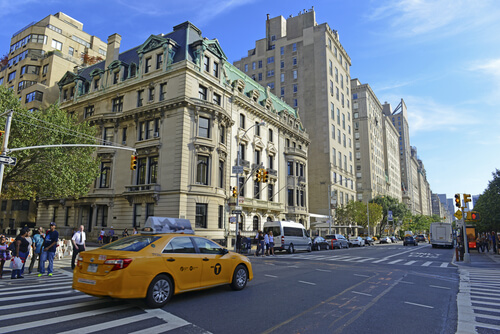In recent years, cities like New York have been at the center of a growing trend where stores enter leases with residential and office condominiums to operate on the ground floor of their buildings and cater to both tenants and the public alike. However, when entering these agreements, careful attention must be paid to the lease – standard forms and shopping center leases will not work, so the broker’s term sheet and the attorney’s draft least should address several basic issues and recognize the differences a retailer faces when operating in a condominium building as opposed to a traditional shopping center storefront. Working with an experienced New York real estate attorney is essential to ensure this arrangement runs smoothly.
Casualty Repair
The condominium board controls the insurance proceeds as well as any decision to repair the building, so the typical casualty clause stating the landlord will make repairs is insufficient. The casualty clause should include language specifying the landlord will ask the board to promptly repair any casualty. A tenant may even go so far as to ask the landlord’s representative on the board to vote for any requested repairs.
Lease Subordinate to Condominium Documents
The lease needs to expressly assert it is subordinate to and subject to the condominium declaration. It should also require the tenant to abide by existing rules related to garbage disposal and other store operations.
Enforcing Condo Board Obligations
The lease needs to clarify the landlord only has limited rights and opportunities with which to make repairs, because the condominium board usually has the responsibility and power to repair the area outside the retail unit. Most landlords will not grant tenants the ability to bring an action against the condominium board in the name of the unit owner if needed repairs are not completed in a timely fashion.
Escalations
The escalations need to match the structure of the condominium. The share of tax increases, for example, for a condominium unit should reflect the appropriate portion of the premises the retail lessee occupies in that particular building.
Non-Disturbance Protection from a Condominium Default
In New York City, it is almost always true that a retail tenant’s rent payment vastly exceeds the landlord’s payment of the monthly common charges. A tenant, however, may have very valid concerns about what happens if a condominium unit owner defaults if the condominium board gives them a special assessment to pay. To prepare for such an event, tenants should ask the condominium board for non-disturbance protection. A potential retail tenant may also include a provision in their lease that requires the board grant them non-disturbance protection. If a non-disturbance agreement is not granted by the condominium board, potential retail tenants can examine the history of payments from their prospective landlord to the condominium as well as the rents paid to their prospective landlord to determine the level of eviction risk that exists for them in this situation.
Retail & Residential Lease Legal Help
Looking for top notch New
York legal help with your residential or retail lease agreements? Look no
further than the talented team at MOWK Law for all your real estate law needs.

